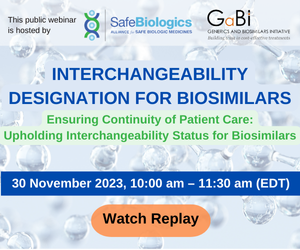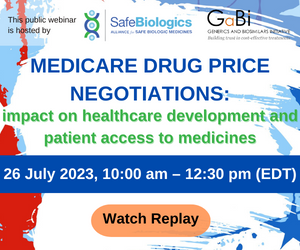“The EU needs greater regulatory capacity and automatic pricing and reimbursement to deal with the number of generics required to serve the market”, said Mr Georg Stark, Joint Managing Director of Alfred E Tiefenbacher GmbH & Co, speaking at the Drug Information Association (DIA) 21st Annual EuroMeeting held in Berlin, Germany, from 23-25 March 2009.
DIA EuroMeeting: EU needs automatic pricing to get generics to market
Home/Conferences
|
Posted 01/09/2009
 0
Post your comment
0
Post your comment
According to Mr Stark, “It’s about time. Life cycles in our industry are so time conscious compared to other players. Even though generics contain known active ingredients, it still takes too long to get them to market. And without an appropriate number of generics available, healthcare systems will be unable to free up budgets to invest in R&D. The lag is largely down to a lack of resources and a shortage of slots for manufacturers going through the EU's good clinical practice procedures. More needs to be done," Mr Stark said.
He admitted national agencies are working together to tackle the shortages and introduce initiatives to ease the demand for slots. For example, Sweden has introduced a slot allocation system that takes into account the development times and planning horizons of the generics industry. “This means that generics should hit the market earlier,” Mr Stark said.
However, in terms of regulatory capacity, “bias to encourage innovation … is logical and reasonable to ensure that unmet clinical needs are met,” said Mr Eddie Gray, GlaxoSmithKline's European Pharmaceuticals President. Furthermore, there are few therapeutic areas with no generic medicines available: “There doesn't seem to be a problem on an institutional level,” Mr Gray said.
Pricing and reimbursement is also slowing down generic entry, said Mr Stark. “There is absolutely no need for pricing and reimbursement approvals at individual member state level … Marketing authorisations should be the only decisive milestone to get to market.” He called for a new system to approve prices and reimbursement status once marketing approval has been awarded.
Meanwhile, Mr Gray argued that pricing and reimbursement agencies should exchange information to ease entry and queried why there was a large disparity in pricing of generics. “It raises questions for health systems about management of entry and uptake … being able to bring prices down to the lower levels seems to be an immediate and obvious opportunity,” Mr Gray concluded.
Source: Scrip
Guidelines
US guidance to remove biosimilar comparative efficacy studies
New guidance for biologicals in Pakistan and Hong Kong’s independent drug regulatory authority
Policies & Legislation
EU accepts results from FDA GMP inspections for sites outside the US
WHO to remove animal tests and establish 17 reference standards for biologicals
ASBM/GaBI 2024 webinar on BIOSIMILAR RED TAPE ELIMINATION ACT (S2305)

Home/Conferences Posted 05/11/2024
ASBM/GaBI 2023 webinar on INTERCHANGEABILITY DESIGNATION FOR BIOSIMILARS

Home/Conferences Posted 12/12/2023
The best selling biotechnology drugs of 2008: the next biosimilars targets








Post your comment